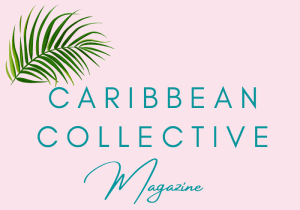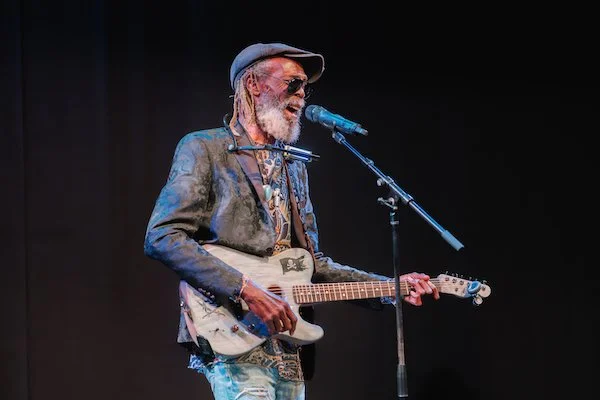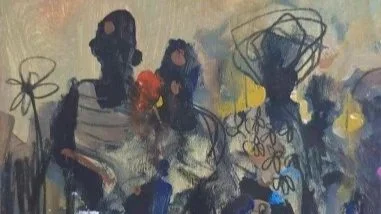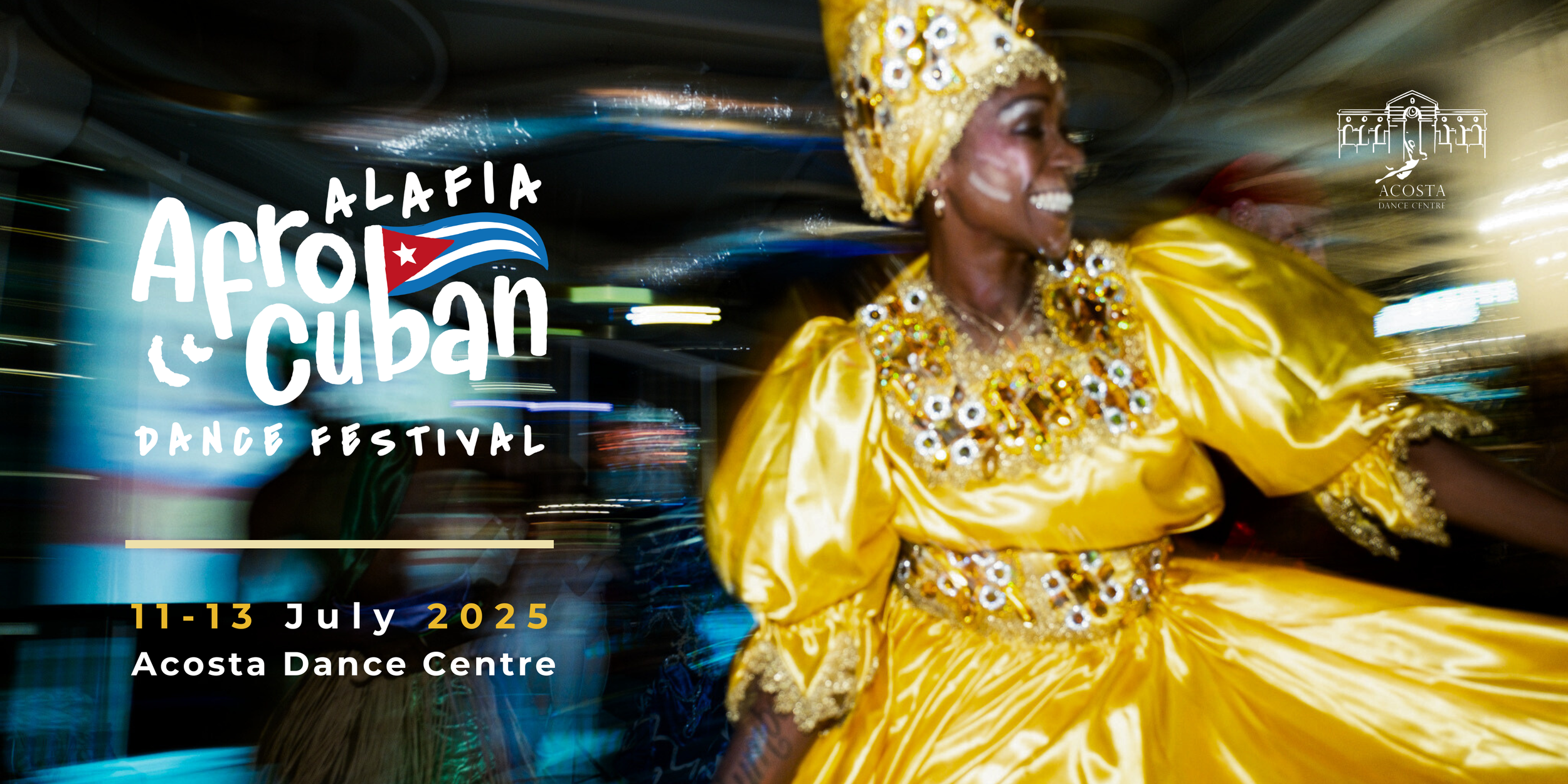Glenda Cox: First Grenadian to Win a Primetime Emmy
photo courtesy of Glenda Cox
written by Shanida Carter
Entertainment legend and Jamaican American Sheryl Lee Ralph wasn’t the only Caribbean woman who won a Primetime Emmy last month. Glenda Cox became the first Grenadian to win in the ceremony’s 73-year history. Cox is the executive producer of “Lizzo’s Watch Out for the Big Grrrls” on Amazon Prime, which won for Outstanding Competition Program.
In the series, 13 plus-size dancers compete to be on stage with Lizzo at the Bonnaroo Music Festival. Body positivity and self-love, messages that Lizzo has been preaching, are at the center of this competition reality series. It’s what drew Cox to the project. The mother of one talked about the long and winding road from Grenada to Trinidad to the States and back to the Caribbean.
The following interview has been edited and condensed for optimal readability.
SC: Was this your first time going to the Emmys? You've been doing shows for a long time. How did it feel just being there?
“I was in Grenada for a month. I wasn't even looking for a dress or anything. I wasn't taking it all seriously. It wasn't clicking until I got on the plane. Then I went to the CAA (Creative Arts Agency) party. I'm repped by CAA, and all these celebrities were around me. Then I went to Spike Lee’s Black Excellence Brunch. They honored the director from Lizzo’s show because she won [a Creative Arts Emmy the weekend prior to the main Emmy ceremony.]
Then the day of, they sent this big Lincoln car. My daughter is my date, and my friend Siobhan came... It all hit me when I'm sitting at the table with writers who write for “Hack,” which I watch on HBO. Right in front of me is the supporting cast of “Abbott Elementary.” I was in the room, and I was at the table. At a table. I wasn't in the stands. I was literally on the floor at a table and that to me was amazing.”
SC: You are the first Grenadian to win a primetime Emmy. How does it feel to be a trailblazer?
“Oh, it feels amazing. Yeah, it feels really great. I don't think a lot of West Indians have [won an Emmy]. We have Sheryl Lee Ralph. That speech and to be there for that speech?! Oh my God! Everything that came out of her mouth… she just took my breath away and that was even before we won the award. Just hearing that, I'm like, ‘Yeah, that's me, always dreaming and it's good for children to hear this and for immigrants to hear it and everyone who always had this dream to hear this speech that she gave. It was beautiful. Then to end up winning one myself, it was pretty cool”.
SC: You are originally from Grenada, but you were brought up in Trinidad. Tell us more about your background.
“My grandmother and my aunt on my dad's side lived in Trinidad, so when the invasion happened in Grenada, my dad was leaving and he left me in Trinidad with my aunt while he and my mom went to Fort Lauderdale, Florida. I think I was there for six or seven years in Trinidad with my aunt. Then, I went back to Grenada for two years to get my visa in order to travel to the United States to meet them because I'm a Grenadian citizen.”
SC: How did your West Indian background, especially with all the moving around, shape your life and your career?
“Do you know the term ‘barrel kids?’ Our parents used to send barrels for us. People leave their kids though they didn't want to, to go find better, to support them better, to support their lifestyle better. So my mom would send the barrels with food and clothes and stuff for me. I was [my mother’s] only child.”
“When I got to the U.S., it was just her and I. She worked really, really hard. As housekeeper, she cleaned for an affluent family for like 25, 26 years. Mr. Styles literally owned Fort Lauderdale. He was very wealthy and she worked for that family. I grew up in that house and, on weekends, she would do extra jobs. You know how they make fun of West Indians: they have three and four jobs. Well, my mother was the one who had her main job. She would do two side jobs to hustle. I saw all that. Then, I grew up in this household where the family was extremely nice. His son is currently my daughter's godfather. I just knew hard work. I knew what hard work meant from my mom, my dad, from seeing uncles. We are hardworking people, you know?”
“Being the only child, I read and watched a lot of TV. I loved “[Beverly Hills] 90210.” This is a memory that stuck in my head. I saw Darren Star and above his name said, ‘Executive Producer.’ I was like, ‘That's what I wanna be.’ I researched and I understood that he was the writer of these shows. Darren Star did “90210,” “Melrose Place” and “Sex and the City.” I looked him up and knew that he was the writer of these programs and that's what I wanted to do. But you can't tell your parents that, being from the islands, ‘cause they're like, ‘TV, what the hell is TV?’”
SC: You went to Virginia State University an HBCU. Tell us about your experiences there.
“I studied English and Mass Communication. You could take that and go to law school, mass communication, dabble in the arts. That was my thinking. My senior year, Tim and Daphne Reed opened New Millennium Studios with Time Warner on slave property, and they came to Virginia State looking for interns. A couple of us went off and interned with them. The first thing they did was a commercial.
My friend got to go into the field. I was jealous, but I got to do office work. Then, graduation came and all of a sudden, they had a show called “Linc’s” with Pam Grier, Tisha Campbell, Debbie Allen directing, Gregory Hines. Susan Fales-Hill wrote “Linc’s” with Charles Wright and Adriana Trigiani. It was three of them and they wrote this show. I remember I worked in the office. Again, I didn't get to work in the field, like my friend, Nico. I worked in the office, and I got to go get coffee and go to the grocery store and I was a P.A. [production assistant]. It was the best experience. It was one of Showtime's first scripted programming.
I spoke to Ms. Hill, and I said, ‘I wanna be a writer.’ She was like, ‘Oh, you do? So, write me five pages of ‘Linc’s’ and let's see what you got.’ So, I wrote her five pages. She read it, and then she's like from now on, ‘You're gonna be the writer's assistant.’ I was like, ‘What?!’ I started to copy the scripts and all that kind of stuff. When the show ended, Tim and Daphne Reed spoke to myself and Nico ‘cause we're like, ‘We're going to New York.’ They were like, ‘No, you guys should stay here and learn the field.’ But again, [I’m] West Indian, I'm going to New York.”
“I think Nico spent a year, but I made friends including Cynthia Nicolella. She worked for Showtime in the post department. She and I became really good friends. Her dad was John Nicolella who did “Miami Vice.” He directed all of “Miami Vice” so she had all these connections. She got me a job on John Wells’ set in the accounting office. So, I went to New York and started my career there.”
After Cox worked on several movies and TV shows as an accountant, she decided to move to Los Angeles“where the writers are.” She previously met and worked with a Bajan woman ironically named Carrie who went on to work as an accountant on “Sex in the City” and life came full circle.
“Carrie got me an interview with guess who? True story. Darren Star. I went out. I met with him. He was doing a show with Sarah Michelle Geller for UPN that didn’t last long. Why did I cry in the interview? I think he thought I was crazy, but just imagine this little girl from the islands and pointing out somebody's name. I think I only pointed it out because it said, ‘Star.’ It was just surreal to sit there and interview with him. I didn't get the job, which was okay, but while I was out in L.A. for five years, I was a writer's assistant on these Saturday shows: “Queen of Swords” and “Mutant X.” “Mutant X” was done by Marvel’s Stanley Lee. He would come in the office because it was his first foray into this scripted world.”
[Additional Read: Fireside Chat with Lady Montano on the “King of Soca” — Machel Montano]
While in L.A., Cox worked with and learned from a group of male Jewish writers, one of whom invited her to go back to New York and produce reality television at MTV. Her career in reality TV started with “Making the Band.”
“I was an assistant story producer, but he and his boss took me out to lunch to tell me that they're promoting me [to story producer.] I said, ‘How are you promoting me? I've never done this before.’ They said, ‘Because if Puffy walked in the room and did not see someone of color in that position, it would be a problem.’ Two white men told me that, and it's true…So, I didn't even start from where I needed to. I started at this. They gave me my rate and my eyes opened. I was like, ‘oh my goodness!’”
Cox worked her way up through various producer roles on “Being Bobby Brown,” “Oprah Behind the Scenes,” and several “Real Housewives” shows before landing as executive producer on “Watch Out for the Big Grrrls.”
SC: Explain what your role is as an executive producer. What did you do on the show?
“I am in charge of post-production, and then I start when pre-production happens. I was there to help interview the field producers who were coming on. Kimberly Goodman, was the executive producer in the field. I went out in the field for the month and a half to man story. We sit in the control room. We'd watch all the [feeds.] We know exactly what's going on. For instance, I knew Jasmine was a problem. I knew Jasmine could become a storyline, so I paid attention to that story. I build stories in the field so when I go into post, there I have eight editors, eight story producers. Remember I used to be a story producer. I watch all the footage. I'm the one who did the interviews with Lizzo and the cast when the field producers are gone. Then after everyone wrapped the pickups, I would write all the questions, me and my story producers for the cast and Lizzo. So, I put together each episode.”
SC: What was it like working closely with Lizzo?
“Oh, she's a really down-to-earth, lovely human. What she preaches, she walks: the positivity and being there for people. She's just a genuine spirit”.
SC: What did your 15-year-old daughter think of that experience and that whole evening?
“She was very proud of me and said it's one of the best nights of her life.”
SC: Any word on season two?
“Well, they're talking about it. I know that for sure. Lizzo’s on a world tour right now.”
SC: What else do you have lined up? I read that you might be doing something in the Caribbean specifically.
“I'm shopping for a couple of projects, which is a good time for me to be doing that. I'm doing “Ultimate Girls Trip 3” because a girl has to work. I hope to have two scripted projects out soon. Then there's a show that I shot that will be not only focused on Grenada, but all the islands throughout the Caribbean.”
SC: What's your advice to other women who want to go into your career field?
“Just… The only reason why I'm pausing is because it's not a hard field. There are P.A., production assistants, right? Once you get that role, your network is very important. Your other P.As will help you with other jobs. The department you work in on that set, the people around you, you make sure and stay in contact with those people because those people could tell you about your next job.”
“Remember I was in the accounting department. They always had their ear to the ground to tell me what was happening or what I should apply for. There are independent films out there. You never know who is doing what. If you want to be in my department, the post department, I would call a friend who I know is an editor and say, ‘Hey, do you know anybody looking for an assistant editor? Cause I'm looking for an assistant.’ I've brought in two of my cousins just because they love TV. I'm always trying to help out.”
“Work hard because once they see you working hard, they have no problem recommending you to the next person next or next project.”





